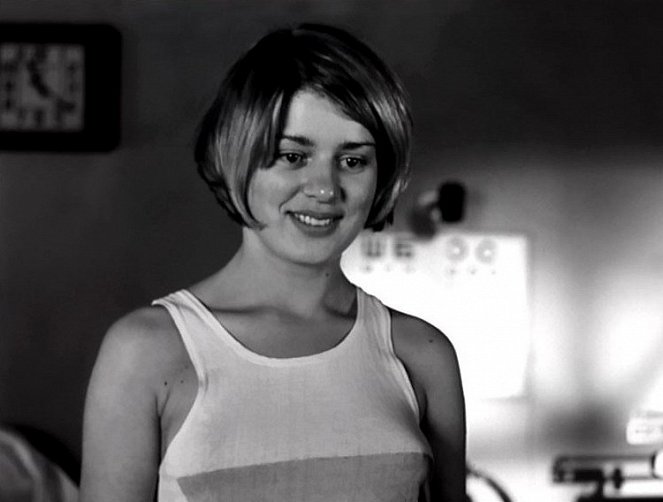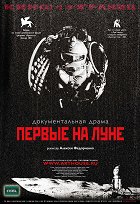Directed by:
Aleksey FedorchenkoScreenplay:
Ramil YamaleevCast:
Alexej Anisimov, Viktoriya Ilyinskaya, Виктор Котов, Anatoli Otradnov, Igor Sannikov, Alexej Slavnin, Boris Vlasov, Oleg Loevskiy, Anton Eskin (more)Plots(1)
The First on the Moon opens with a warning to the viewer: "The state of the archival footage does not always meet standard requirements, but it is used due to its unique character." Then we get images from old picture books of the first pioneers in the field of rocket propulsion. "Everything that happened was captured on film," A Russian archivist says. "That means it happened." What follows is a varied collage of archival footage from the 1930s and surveillance tapes from the secret service, leading to an occasionally hilarious "reconstruction" of a secret experiment with a manned space rocket. The footage stirs up memories of those exiting times for swimming champion Khanif Fattakhov, who nowadays builds moving insects for a museum. He used to be a member of the pioneer team that consisted of a test pilot, sports champions and a "living cannonball" from a circus. Gradually, the question forces itself upon the viewer as to whether what he is watching is true. Editing, sound and music certainly play special roles in this documentary. And what about the comment of the former spy in the hospital: "Mankind doesn't learn. It is ignorant about itself. There is no such thing as progress - technical or moral." In the end, the credits disclose some of the many secrets that are dealt with in this film. (International Documentary Film Festival Amsterdam)
(more)Reviews (1)
For viewers unfamiliar with Russian history and realities, this film will primarily be a fictional documentary about a Soviet rocket to the moon; for others, it will be a highly original and subjective reflection of the Soviet 1930s. From this perspective, the film operates more on the level of fantasy, drama, and imagination. The illusion of being a documentary and period accuracy may not be as strong as it could have been, but that might only bother the first type of viewers - the rest will enjoy a plastically and only in the style of sci-fi/fantasy elaborate world of alternative Stalinism. When you watch closely, the film is perhaps even more about the overall space program than the rocket and, above all, about what surrounded it: human destinies against the backdrop of secret actions and NKVD espionage, as well as the tremendous tension and enthusiasm of the generation of that time. The 1930s are portrayed by Fedorchenko as both cruel and touching, with the typically Russian attention to the absurdity of human fate. Secret police officers burning documents of the supposed Russian moon landing that everyone believed did not happen, while it "actually" did occur - what could be more paradoxical? Fedorchenko uses fictional film psychotherapy to come to terms with the trauma of his nation, namely the fact that the immense efforts of the interwar generation were betrayed by the Stalinist system and forgotten.
()
Gallery (4)
Photo © ANTIPODE Sales & Distribution llc.

